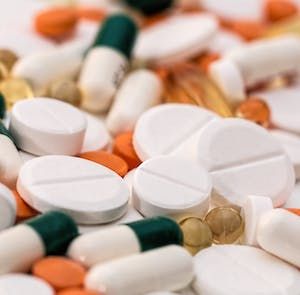Article
Probiotics Show Promise Reducing C Difficile Risk Following Fluoroquinolone Use
Author(s):
Clindamycin, fluoroquinolones, and ceftriaxone are associated with the highest risk of CDI.

Initial results show the risk of Clostridioides difficile infections (CDI) is lessened by taking probiotics for patients treated with fluoroquinolones.
A team, led by Mary E. Sheffield, PharmD, Department of Clinical and Administrative Pharmacy, University of Georgia College of Pharmacy, evaluated the receipt of probiotics on development of primary C difficile infections among hospitalized patients treated with fluoroquinolones.
The Risk
While the primary risk factor for the development of CDI is antibiotic exposure, the actual risk varies based on different antibiotic classes and patient risk factors.
While probiotic supplementation is known to reduce the risk of antibiotic-associated diarrhea with variable effects on primary CDI, there is conflicting and insufficient data regarding the impact of routine use, which is not recommended as part of the 2018 Infectious Diseases Society of America (IDSA) guidelines.
“The use of probiotics has been shown to have beneficial effects on the GI tract through various proposed mechanisms, including restricting pathogenic growth by competing for essential nutrients, inhibiting adhesion of C. difficile in the intestine, producing antimicrobial metabolites, reducing osmotic diarrhea and restoring intestinal metabolic homeostasis,” the authors wrote.
There is the highest associated risk of CDI involving the use of clindamycin, fluoroquinolones, and ceftriaxone, with fluoroquinolones representing 1 of the most frequently and inappropriately prescribed antibiotic classes in the US.
The US Centers for Disease Control and Prevention (CDC) recently published data showing 47% of inpatient fluoroquinolone use was inappropriate.
Fluoroquinolones have been linked in the past to an increased risk of CDI, but probiotic supplementation could reduce the risk of antibiotic-associated diarrhea with variable effects of the infection.
The Study
In the mutli-center, retrospective, observational cohort, the investigators examined 2 groups of 100 patients admitted between August 2019 and August 2020 who received at least 3 days of definitive monotherapy with levofloxacin or ciprofloxacin within 72 hours of admission. The first group included patients taking at least 1 dose of probiotics during definitive therapy and the second group was comprised of patients who did not receive probiotics.
The probiotics included in the study were Saccharomyces boulardii and a Lactobacillus spp. predominant blend of Lactobacillus acidophilus, Lactobacillus bulgaricus, Bifidobacterium bifidum, and Streptococcus thermophiles.
The investigators sought primary outcomes of the incidence of CDI and secondary outcomes of rates of C difficile diagnostic stool testing, additional infectious diagnostic testing, and non-CDI related gastrointestinal side effects.
Results
Overall, patients treated with fluoroquinolones who received probiotics had a non-statistically significantly lower incidence in overall cases of C difficile infections compared to patients who did not receive probiotics (0% vs. 3%; P = 0.246). In addition, patients who received probiotics had statistically significantly fewer C difficile diagnostic stool tests performed (4% vs. 10%; P = 0.096).
Patients receiving probiotics also had statistically significantly fewer C difficile diagnostic stool tests performed compared to the other group (4% vs. 16%; P = 0.005) and fewer additional infectious diagnostic testing performed (4% vs. 10%, P = 0.096).
While the initial results can be considered positive, the investigators said further research is needed to optimize and standardize probiotic prescribing in high-risk patients.
“Although not statistically significant, zero cases of CDI were observed among patients on fluoroquinolones who received probiotics,” the authors wrote. “With the continued inappropriate and excessive use of fluoroquinolones, the results of this trial provide important data in a tangible target population.”
The study, “Influence of Probiotics on the Development of Clostridioides difficile Infection in Patients Receiving Fluoroquinolones,” was published online in Pharmacy.





